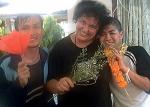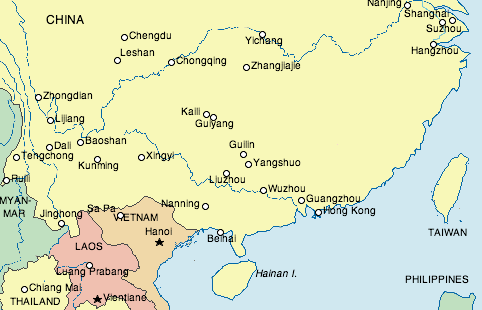This And That In China
February 21st, 2008If there is anything a foreigner knows about China, it is that he or she knows that she knows nothing.
Today an American woman went to the Blind Massage School for accupuncture…but they don’t do accupuncture on foreigners. She doesn’t know why. Two different internet cafes refused me today even though I had been going to them before. I don’t know why. Meo! (No!) The price boards in the hotels show 680 Yuan but when they offer you a room it is lowered to 50 Yuan. Who gets to pay 680? No one knows. Some hotels won’t take foreigners at all. No one knows why.
Many Chinese are adamant about getting rid of that extra fluid in their throats. So they hack and spit…wherever they might be…trains…restaurants…on the floor next to their chairs in the internet cafes…
A Canadian wanted to go to Shanghai from Beijing a few weeks ago during the worst of the storm in China. A small boy with some English was willing to help him find the right window at the train station. But the vendor said she knew English and sent the boy away. The Canadian and his wife spent 30 hours on the train. When the train reached it’s destination they climbed off the train. But only when they looked at a menu in a restaurant they realized that they had gone to Xian instead of Shanghai. The ticket seller at the train station hadn’t understood them at all. So they looked at the unearthed soldiers or whatever they are called in Xian while they waited three days to get train tickets to Shanghai.
Whatever…




